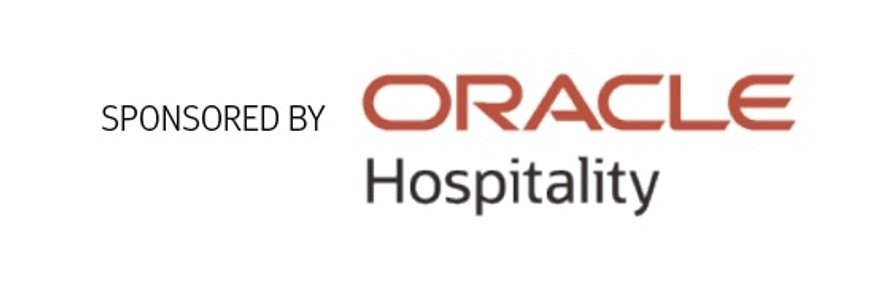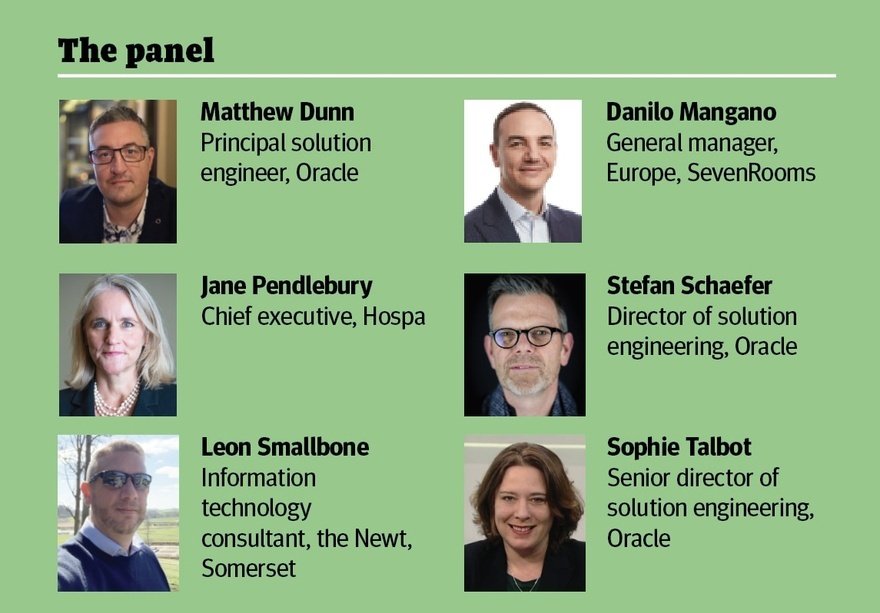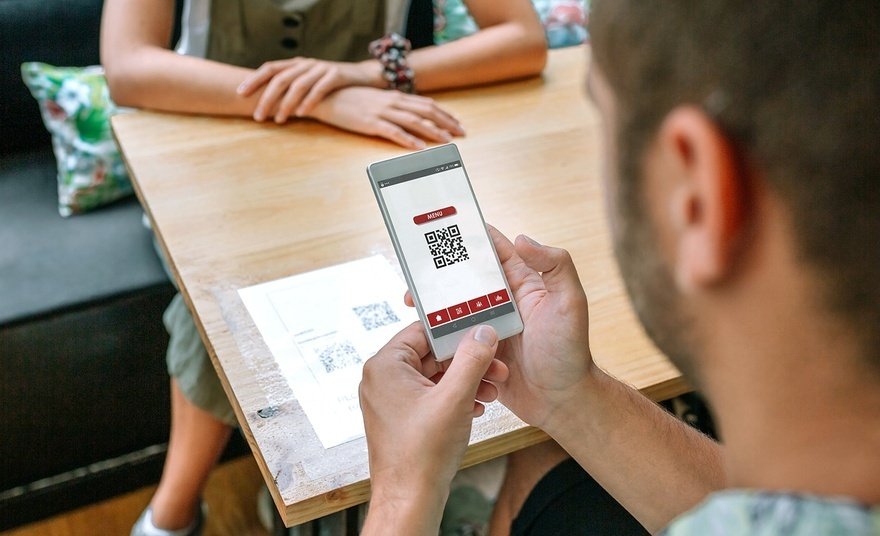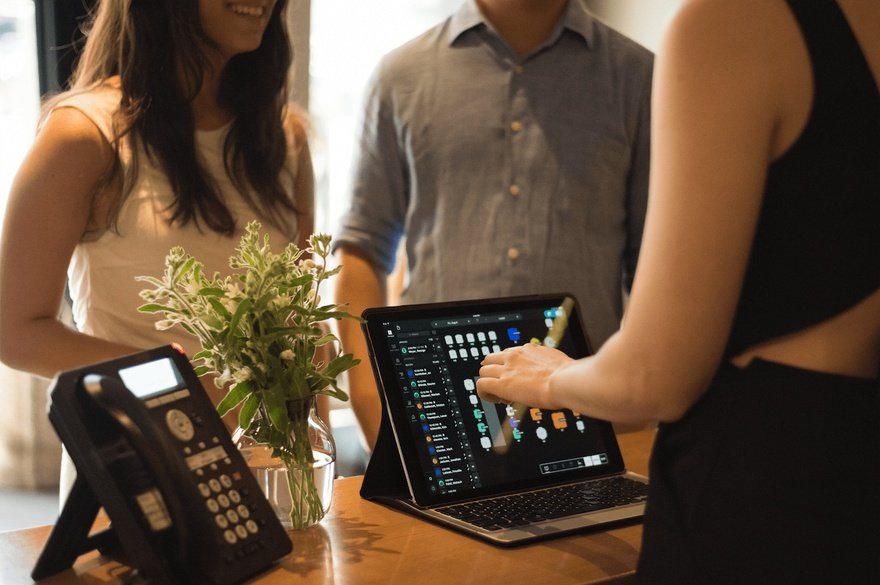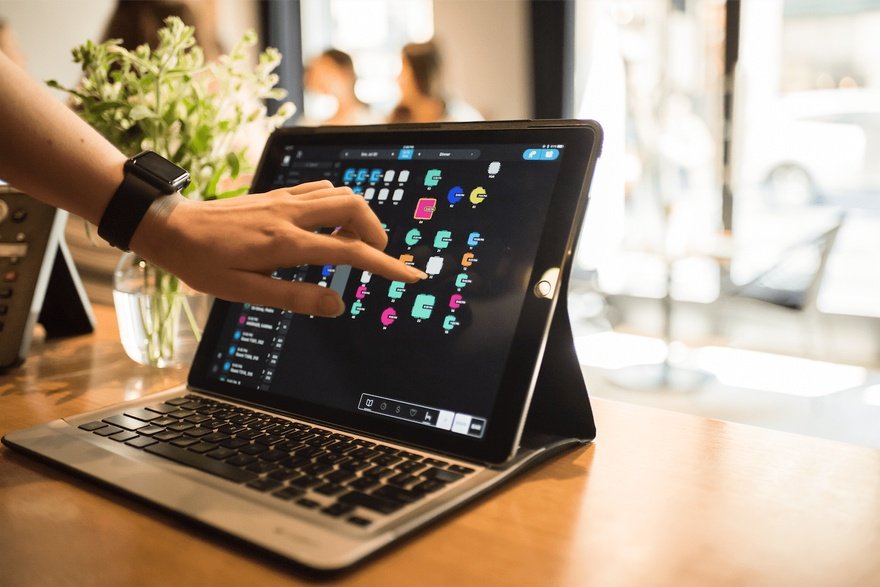Balancing technology with the human touch: lessons learned from the Digitising Customer Service webinar
Technology has enabled operators to create new revenue streams and diversify their businesses over the past 12 months. As hospitality gears up for its big reopening, The Caterer's Digitising Customer Service webinar, sponsored by Oracle, discussed how to leverage technology in the hotel industry without losing the essential personal touch.
Jane Pendlebury, chief executive of Hospa, the hospitality professionals' association, notes the industry has undergone a host of changes in the past year, not least having to introduce one-way systems along with numerous closures and reopenings. But on the technology front she believes the biggest change is the resurgence of QR codes: "Something we thought we'd all put to bed years ago."
There are two reasons for this return, she says. "One: they are so easy to use – you can just use your smartphone camera to read them and you don't need a specialist app. But it's also because of the ‘less contact, more engagement' environment we now find ourselves living in."
That applies to a range of interactions, including remote check-ins, as well as making and paying for orders. "Apps and using your own digital device – not necessarily something that the hotel has provided – has seen the biggest change over the last year."
However, in the post-pandemic world, choice will be key. "Someone gave me the example of a five-star London property that had converted their lovely leather-bound wine list onto an app during the pandemic. When they were able to open, their dilemma was: do they bring the leather-bound wine list back or do they keep it on the app? And I think the answer is choice – you have both. Somebody that does want to scroll through can have that option and someone who loves the theatre of a wine list [can have that too]."
Matthew Dunn, principal solution engineer at Oracle, agrees accessibility is crucial to the customer experience. "I think it's not only a device-agnostic solution you have to provide, but a very intuitive user interface as well. We all use mobile phones every day – no one thinks what buttons to press to make a call or post a tweet, we just do it; it's second nature. F&B technology should be no different. It should almost be invisible in the process."
Prior to joining Oracle, Dunn oversaw the hospitality technology in Wembley Stadium and the Emirates Stadium: "I had to train 2,000 employees in a week to use a point of sale. So what did I learn from that process? Well, to keep it simple." He adds: "You are almost providing a solution that could be self-taught in 20 minutes."
The extra mile
Leon Smallbone, information technology consultant at the Newt, a country estate in Somerset, says having the latest digital services available and maintaining an old-fashioned approach to customer service are not mutually exclusive.
"We have QR code ordering, we have click and collect, we have the best internet connection you'll find in any estate in the middle of Somerset," he explains. "It's about that balance. You have to cater for those who don't want that [personal] experience and would rather speak to someone on WhatsApp or buy their tickets online. For example, guests can book a cider tour experience on the estate on our website or speak to a concierge to arrange a trip.
"We also have an app that we allow [customers] to buy their garden membership on. But some people won't be able to do that, so we will help them and manually issue their membership."
It all depends on the type of offering you are providing, he adds. "If you are looking at a different style of service or hotel, maybe a two- or three-star hotel in London, then they may well choose to automate everything because that level of service is not expected."
In addition to its hotel, the Newt offers a farm, shop, butcher and bakery. During the first lockdown it turned those operations into an e-commerce business, delivering fresh produce to London.
"So while one area of the business closed down – our boutique hotels closed and reopened five times in the last 18 months – we've managed to find alternative revenue streams to keep our staff working and engaged, and give that marketing exposure about our wonderful estate."
"We were fortunate that we did remain open, because people could come and exercise here. So we were able to leave some small outlets open for refreshments and our farm shop in order to serve the community. That's how we've adapted and we are obviously looking forward to reopening."
Save the data
Technology has clearly played a huge part in the industry's ability to adapt. "We've seen more technology changes implemented across the industry in the last 12 months than has been accomplished in the last few years," says Danilo Mangano, general manager for Europe at SevenRooms – a restaurant reservation system that works globally across 40 markets and 250 cities.
We've seen more technology changes implemented across the industry in the last 12 months than has been accomplished in the last few years
"We saw many hotel clients who tapped a lot more into the technology to really marry the innovation and creativity with social distancing. We saw them basically creating thousands of contactless payment options, having hundreds of QR menu cards, hundreds of mobile ordering solutions… and all of this was implemented in a matter of months."
He believes this has created a huge opportunity for operators to capitalise on customer data. Prior to the pandemic, online ordering represented 10%-20% of sales, increasing to 80%-90% of revenue during lockdown, he says. Leveraging customer data through these new channels could help boost customer acquisitions.
"Now operators can really build highly targeted campaigns and reach out to those guests and maybe invite them to dine in now that dining rooms are reopening."
Hospa's Pendlebury echoes the point about keeping up momentum for reopening. "I think we have to dive straight back in there and do our very best. And the hospitality industry, as we have proved time and time again, is very versatile, very innovative and very quick to adapt."
The hospitality industry, as we have proved time and time again, is very versatile, very innovative and very quick to adapt
Five tips for reopening
1 Advertise your cleaning practices
Reassuring customers about cleaning practices is still really important, says Hospa's Jane Pendlebury. "I think it's absolutely fine for any hospitality venue to really shout about what they are doing differently with their hygiene and cleaning. I don't think you can overdo it. If you are not interested, then you won't be reading the information, and if you are interested, then you'll want to know the detail."
2 Make sure staff are supported
Managers and owners across the industry need to make sure staff are feeling confident and properly supported, says Pendlebury. "If your staff are happy and content, they will then welcome guests a lot more freely and a lot more happily. And that will work through [the whole business]. So keep your staff happy."
3 Think big with the technology
Oracle's Matthew Dunn says innovation is best when it's customer-led. "And it's our job to make that journey from concept to reality as easy as possible," he says. "Come and talk to us, tell us what you want to try and do – we either know someone who has already done it or we can show you the path to get there. But don't limit yourself to what you think the technology can do."
4 Use your customer data
"I would say definitely make the most of every channel to collect customer data," says SevenRooms' Danilo Mangano. "I think that is key for the future and has been key for the last few years, even outside the pandemic, but even more in a post-Covid world… So the advice is to maximise any channel to collect the customer data, with a good balance of using marketplaces, which are still important," he says. "But be the owner of the guest data for your business."
5 Switch it off and on again
It might sound simple, but Leon Smallbone from the Newt has one key tip: "With my IT hat on, I would say switch off and switch back on again!" Test everything you can possibly test, he says, including everything in the rooms, all the online menus and kitchen printers. "Everything has been shut down for three to five months, things have got dust on them. Switch them on early, get everything updated, make sure everything is working fine... If it doesn't work, switch it off and on again. It will fix 99% of your issues."
Star tech from Oracle
There are lots of ways the industry is creating new revenue streams, says Stefan Schaefer, director of solution engineering at Oracle. "The variety out there is amazing and the hotel F&B industry has been really creative to survive."
Underpinning a lot of that innovation are Oracle's hospitality cloud products, including its Micros Simphony point of sales platform.
The product is served in 180 countries, installed on one million workstations and processes 25,000 transactions per minute. "Those 25,000 transactions contain a lot of scotch eggs, curries, cream teas and not to mention pints!"
The company has published its APIs, which means the Simphony platform can integrate and talk to other applications. "So every hotel and restaurant has the ability to create and connect those new channels."
In addition, it has a sophisticated reporting analytics platform, which allows operators to drill down to individual charges from any device and browser. "You can see all the different revenue streams that are coming in through the day, so you have all your reports in one glance." The platform is also integrated with Oracle's Opera Cloud property management programme, which allows hoteliers to manage operations, room inventories and rates at any location or time.
"Just like with Simphony, we've got a really rich integration layer, which means hoteliers can use that platform for all their hotel needs and for anything else that pops up in the market," says Sophie Talbot, senior director of solution engineering at Oracle.
"So you can book a hotel room, then book a table in the restaurant, and be presented with one of the really creative packages that our hoteliers are marketing, which can include a delicious breakfast and potentially a spa package, all in one ecosystem."
Both products complement each other, she adds. "So once [the customer is] at the check-out phase and has had that wonderful dinner in the restaurant and is querying that £400 charge – I can, from my tablet, show them a beautiful, signed bill to remind [the customer] about the lovely bottle of wine [they] had last night."



